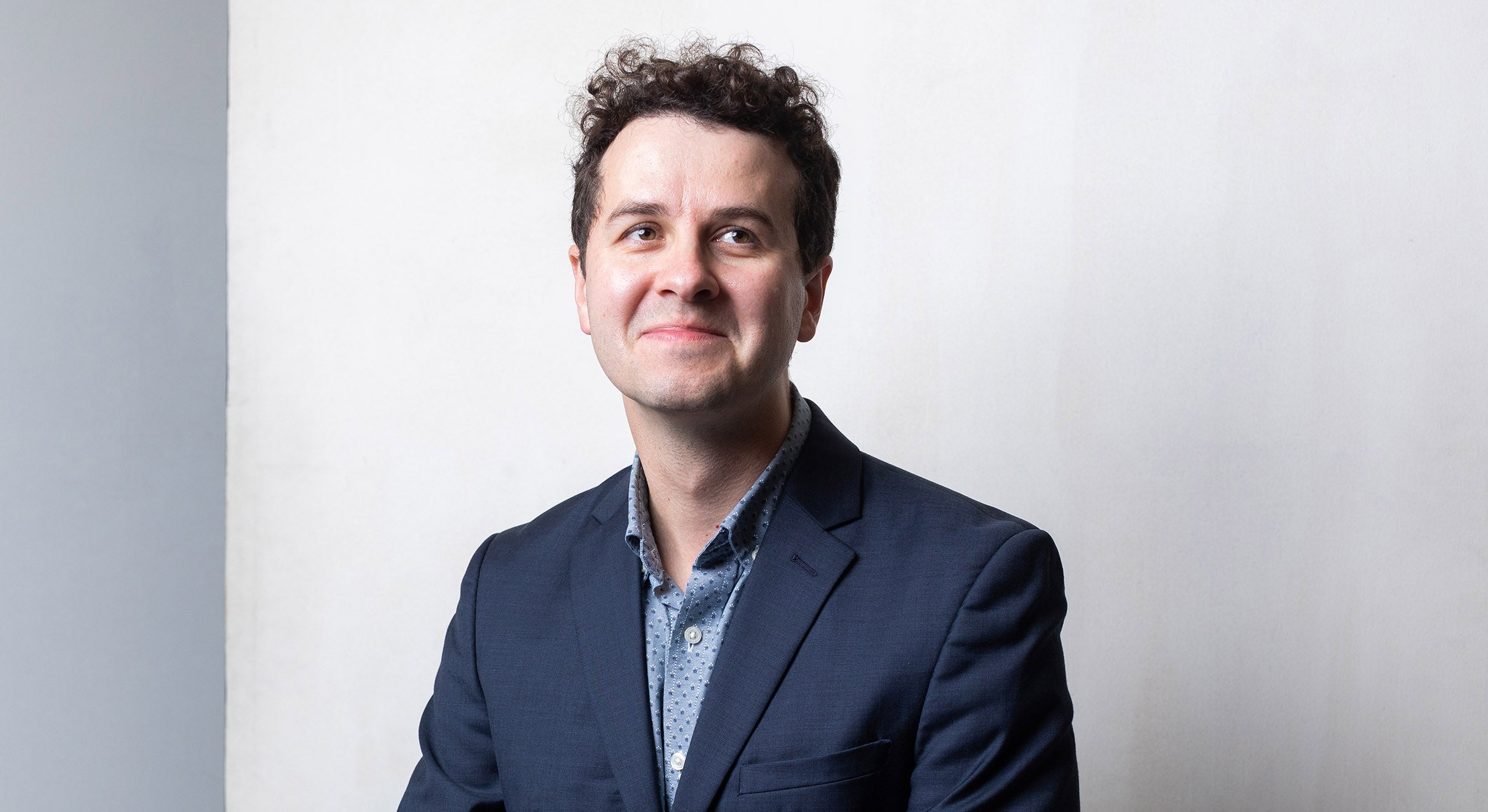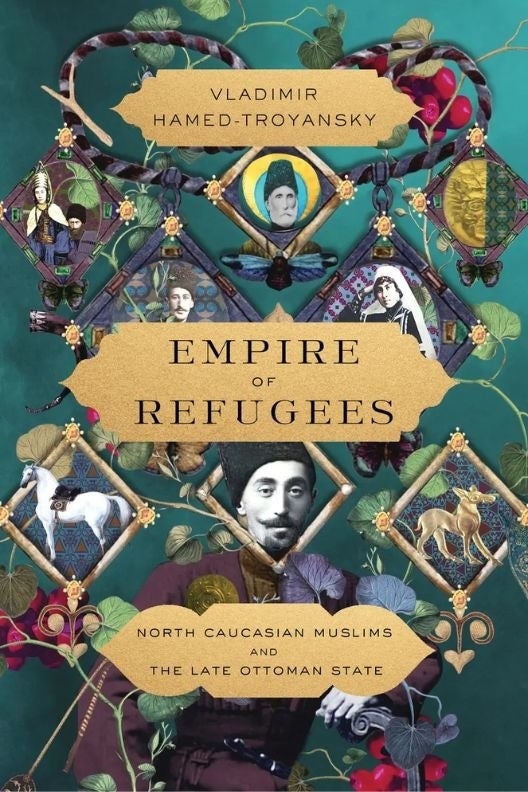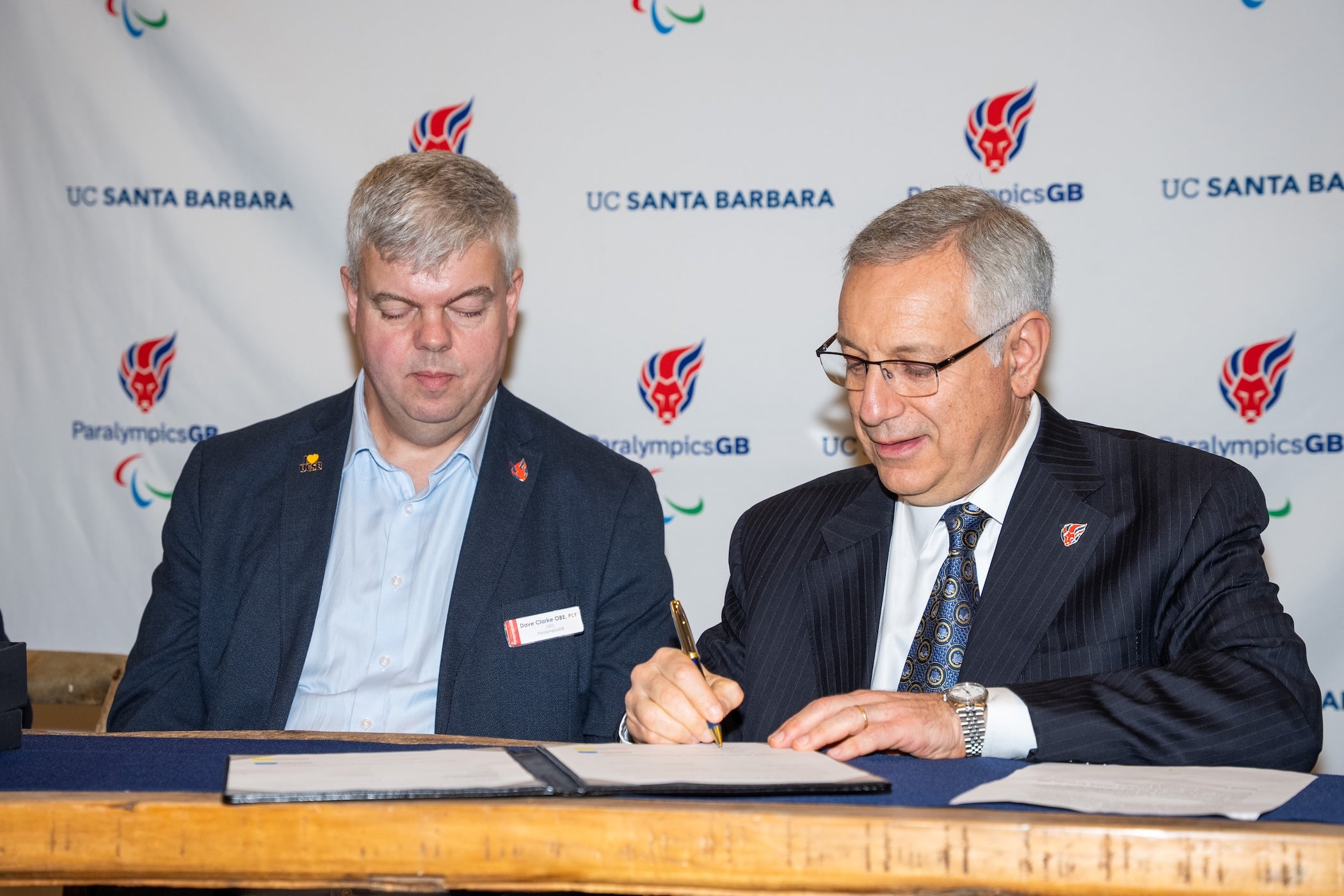
A feat of multilingual research, Hamed-Troyansky’s “Empire of Refugees” wins eight book prizes
While doing research for his first book, “Empire of Refugees: North Caucasian Muslims and the Late Ottoman State” (Stanford University Press, 2024), Vladimir Hamed-Troyansky visited more than 20 archives in 10 countries, a years-long endeavor during which he studied primary historical evidence in Arabic, Ottoman Turkish, Russian, Bulgarian and English.
Hamed-Troyansky, an associate professor in UC Santa Barbara’s Department of Global Studies, started this research during his doctoral studies at Stanford University and completed it as a faculty member at UCSB. His book traces the migration of about a million Muslim refugees from Russia to the Middle East and the Balkans in the late 19th and early 20th centuries.
His research depended on access to several archives and private collections. With rare permission from Jordan’s Ministry of the Interior, for example, Hamed-Troyansky was able to study Ottoman land records, from which he assembled “a near-complete dataset of real estate transactions in the Circassian refugee village of Amman, established in 1878,” he said. “Today, Amman is the capital city of Jordan and the largest city in the Levant. My work showcases the rise of Amman as a refugee town and the remarkable role that refugees played in building up the economy of Jordan.”
The timing of his research was fortunate, he added. “Archival work in Russia, let alone on the topics of an ethnic cleansing perpetrated by the Russian military and the expulsion of indigenous Muslims from the Caucasus, would be impossible today. This book offers a clear vision of Russian colonial expansion in the 19th century and the intentional remaking of demographics through Muslim displacement and migration bans.”
Hamed-Troyansky’s meticulous research has not gone unnoticed among fellow scholars and prestigious academic institutions. Since its publication in February 2024, his book has won eight book prizes and three honorable mentions.
Hamed-Troyansky won the 2025 Pacific Coast Branch of the American Historical Association Book Award, given annually for the best first book by a historian residing in the western U.S. or Canada; the award was a first for UCSB. The Association for Slavic, East European, and Eurasian Studies — the leading professional organization for the study of Russia, Eastern Europe, Central Asia and the Caucasus — awarded “Empire of Refugees” two prizes in 2025: the W. Bruce Lincoln Book Prize, for the first monograph “of exceptional merit and lasting significance for the understanding of Russia’s past,” and the Barbara Jelavich Book Prize, for a distinguished monograph “published on any aspect of Southeast European or Habsburg studies since 1600, or 19th- and 20th-century Ottoman or Russian diplomatic history.” Also, in the category of history and the humanities, the book took home this year's prize from the Central Eurasian Studies Society.

The American Political Science Association awarded the book the 2025 Robert L. Jervis and Paul W. Schroeder Best Book Award in the category of international history and politics. The award committee noted that Hamed-Troyansky’s “path-breaking book reshapes our understanding of refugee regimes by revealing how the Ottoman Empire, long before the 20th-century frameworks of the League of Nations and the United Nations, developed a sophisticated system of protections for Muslim refugees between the 1850s and World War I.”
Earlier awards included the 2025 Joseph Rothschild Prize in Nationalism and Ethnic Studies by the Association for the Study of Nationalities, the 2024 Alixa Naff Book Prize in Migration Studies from the Moise A. Khayrallah Center for Lebanese Diaspora Studies at North Carolina State University and the 2024 Gold Medal in Global History, awarded by the Independent Publisher Book Awards.
“Hamed-Troyansky innovatively integrates refugee studies with Ottoman history, emphasizing the agency of displaced communities in negotiating resettlement, influencing Ottoman rural development, and navigating imperial citizenship,” the Naff prize selection committee noted. “By connecting local experiences to broader imperial and global histories, the book challenges narratives of passive victimhood and demonstrates how refugees became central to state-building and social transformation in the late Ottoman era.”
“Empire of Refugees” also claimed honorable mentions for the Middle East Studies Association's 2025 Roger Owen Book Award, the Social Science History Association's 2025 President's Book Award and the 2025 Allan Sharlin Memorial Book Award.
Speaking to the book’s relevance in today’s geopolitical atmosphere, Hamed-Troyansky said his work — which provides the origin story of organized refugee resettlement in the Middle East — “teaches us an important lesson about what refugees need to thrive in their new country. A good refugee policy requires long-term planning and support by the state. It is not enough to admit people.”
“The government should have legislation and infrastructure in place that are dedicated to refugee resettlement and welfare,” he continued. “Refugees need safe housing, access to education and opportunities to join the labor force. Providing economic tools to thrive helps those in need and boosts local economies.”
Since the book was released, Hamed-Troyansky has been interviewed on multiple podcasts and has given more than 40 talks throughout the U.S., along with stops in Turkey, Japan, the United Kingdom, Germany and the Netherlands.”
“It's been a journey,” he said.
Note: This version includes award updates and replaces the story’s original publication in May 2025.




